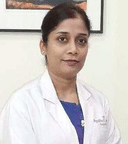Infertility - Can It Be Due To Celiac Disease?
Celiac disease is a condition in which the small intestine becomes sensitive and reactive to gluten, leading to difficulty in digesting food. Gluten is a kind of a protein found in wheat or barley. In reality, if either of the partners is suffering from celiac disease then you are prone to fertility related issues.
Impact of Celiac disease
As compared to men, this disease is more common among women in general. Women suffering from the disease are generally more prone to infertility and other genealogical problems like preterm births and miscarriages. In the case of men, the disease causes the infertility problems including sperm abnormalities such as low count, abnormal shape, reduced function and such others. Additionally, men with the untreated celiac disease might also have reduced levels to testosterone.
Infertility and Celiac disease
Infertility is one of the lesser known effects of the celiac disease, which is relatively uncommon amongst people. The disease causes infertility by affecting the menstrual cycle among women either in a direct or indirect manner. Some of the infertility related problems caused due the disease are listed below.
- Delayed occurrence of menstruation
- Early menopause
- Secondary amenorrhea (a medical condition associated with sudden cessation of menstruation for 6 months or more)
- Hormonal disruptions and abnormal changes
Diagnosis
Celiac disease is usually diagnosed by its own set of underlying symptoms such as chronic fatigue syndrome, irritable bowel syndrome (IBS), iron-deficiency anemia, and such others. Additionally, the condition can be diagnosed if a person is having repeated miscarriages or inability to conceive for unidentified causes.
What can you do about it?
If you experience symptoms of Celiac disease, consult your doctor at the earliest and follow the treatments and preventative measures suggested. Additionally, you can also consult a dietician who will help you to move on to a low grain or no grain diet that would help you further to avoid the disease. In case you have a concern or query you can always consult an expert & get answers to your questions!



+1.svg)
